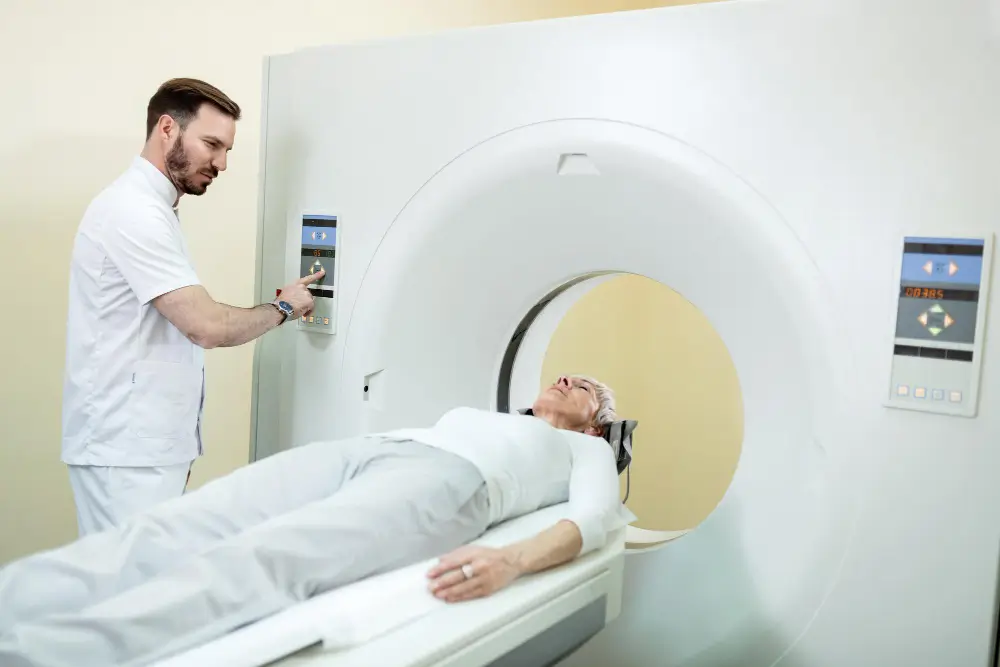One of the most successful cancer treatments available is radiation therapy, a procedure that utilizes high-energy rays or particles to kill cancer cells and shrink tumors. This type of therapy works by damaging cancer cells’ DNA so that they can no longer grow or divide.
While radiation therapy is a powerful method of fighting cancer, it can affect the area of the body being treated, the dose of radiation, and the person’s overall health. Radiation can cause health cells adjacent to the cancerous area to alter so as to cause side effects. The severity or type of side effects depends on an individual’s unique treatment plan. In this article, we will discuss in detail about the side effects of Radiation Therapy in Mohali.

Typical Short-term Effects
- Fatigue:
One of the most common side effects is feeling excessively tired. Fatigue usually starts after completing several fractions, can persist after treatment has ceased and can last a few weeks. Adequate rest, nutrition, and hydration can help manage fatigue.
- Skin reactions:
There may be redness, dryness, itching, or tenderness in the skin surrounding the treatment area, similar to sunburn. This is typically referred to as radiation dermatitis, and will usually heal within a few weeks after treatment completion. Patients are encouraged to keep skin clean, refrain from using soap or cleaning agents, and to avoid direct sunlight.
- Hair loss (local):
Radiation causes hair loss only in the area being treated. For example, if you are receiving radiation treatment to your head, the hair loss will be to the scalp hair (not head hair if you receive radiation to the chest).
- Tastes and digestive changes:
Radiation Therapy in Mohali to the abdomen/pelvis may cause nausea, diarrhea, and/or loss of appetite. Eating frequent small meals and staying hydrated with clear fluids, will help reduce discomfort.
Long-Term or Delayed Effects
The majority of side effects resolve within a week or two of completing treatment, however, some may manifest months or even years later, depending on where the treatment is focused.
- Tissue Stiffness or Scarring:
Radiation can cause fibrosis (stiffening) of the tissues in the area of the body that was treated. This could potentially limit movement or flexibility.
- Risk of Secondary Cancers:
Radiation can potentially increase the risk of developing another cancer, years after the initial treatment, but this is rare.
- Effects Specific to an Area or Organ:
- Brain: If radiation is given to the head, there may be a change in memory or cognition.
- Chest: If the area receives radiation, there may be inflammation of the lungs or some cardio effect.
- Pelvic Area: There may be irritation to the bladder or infertility issues.
Radiation Therapy in Mohali is a meaningful and significant part of modern cancer treatment, from ideology to targeted precision as well as the ability to improve overall survival rates amongst the patients. Side effects may be expected, however, the majority will be temporary and could be managed with appropriate supports and medical advice. Keeping regular follow up appointments, staying healthy from a lifestyle perspective, and communication with your oncology team can make all the difference in your cancer treatment experience and ultimately allow you to recover as healthy and strong as possible.
If you are searching for the best hospital for radiation therapy, or the best oncologist in chandigarh, Sohana Hospital might just be the best option for you. Sohana Hospital Mohali is home to the World’s most advanced technology and North India’s most trusted and experienced Cancer specialists who provide the most comprehensive cancer care. With your determination and the expertise of the doctors, cancer can be conquered.
